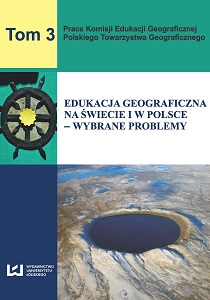Rola centrów nauki w przyrodniczej edukacji nieformalnej na przykładzie Centrum Nowoczesności Młyn Wiedzy w Toruniu
The role of science learning centres in informal sciences education on the example of Innovation Center Mill of Knowledge in Toruń
Author(s): Zbigniew Podgórski, Przemysław Charzyński
Subject(s): Geography, Regional studies
Published by: Wydawnictwo Uniwersytetu Łódzkiego
Keywords: informal education;science centre;Innovation Center Mill of Knowledge;interactive exhibitions
Summary/Abstract: Informal education is a complex process of shaping attitudes, skills acquisition (including evaluation) and gaining knowledge, as en effect of different experiences and under the influence of social environment. Its effectiveness can be improved by applying new, attractive forms such as modern, popular science communication. Due to that in the study they were described opportunities created by science centers. Primary goals of these institutions are to arouse scientific interests in the society, initiate and conduct discussions, encourage self-learning and support education system. Centers of science are supposed to popularise knowledge, mainly by performing interactive presentations about specially selected, scientific topics. Worth noting is that informal education efforts in Poland are relatively recent and they are dated back only to the previous decade, while in Western Europe and United States they have already several decades history. The excellent results achieved by science learning centers in the education field, is an argument for involving natural science educators in implementation of the projects, aimed at developing activity programs for these institutions. A good example of science centre is Innovation Center Mill of Knowledge in Toruń.This organisation is actually able to show selected issues from various fields of science, technology, culture in an interdisciplinary way and its programme significantly goes beyond interactive exhibitions. Through amusement and independent experiments it introduces children and adults to the world of science and technology, enables theunderstanding of natural phenomena and therefore the world around.
- Page Range: 205-219
- Page Count: 15
- Publication Year: 2014
- Language: English, Polish
- Content File-PDF

